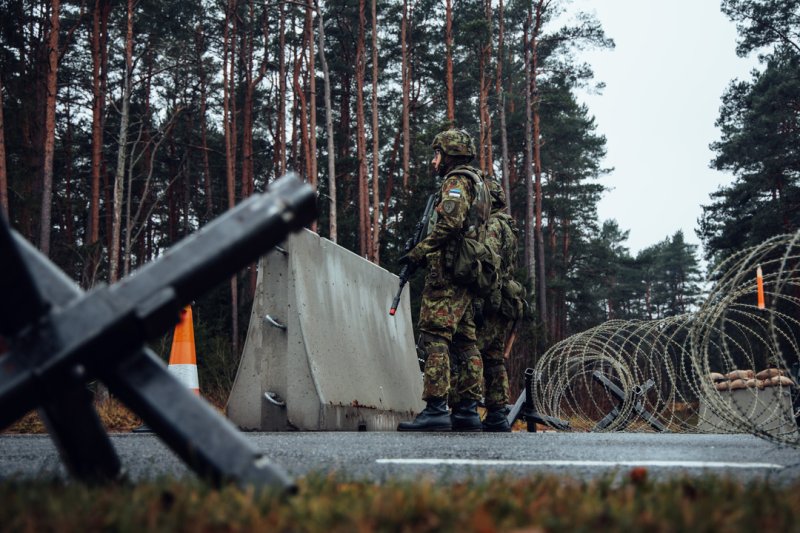On 19 January, the defense ministers of Estonia, Latvia, and Lithuania signed an agreement in Riga, committing the Baltic states to construct anti-mobility defensive installations along their borders with Russia and Belarus in the coming years. The Estonian Ministry of Defense announced this development, stating that the move aims to bolster defenses and deter potential military threats.
This follows Estonian Prime Minister Kaja Kallas's recent interview with The Times, in which she warned that Europe has three to five years to prepare for a potential military threat from Russia on NATO’s eastern flank.
Estonian Defense Minister Hanno Pevkur emphasized the necessity of this project, stating, "Russia's war in Ukraine has shown that, in addition to equipment, ammunition, and manpower, physical defensive installations on the border are also needed to defend Estonia from the first meter."
He stressed that the installations' primary objective is to avert military conflict in the region and to ensure the Estonian people's safety. Pevkur highlighted the strategic importance of readiness for various developments, enhancing Estonia's defense capabilities.
"We are undertaking this effort so that the people of Estonia can feel safe, but if the slightest risk emerged, we would be ready for various developments more promptly," Pevkur added.
The concept for these installations stems from NATO's Madrid Summit decisions, focusing on the need for Allies to be prepared to defend their territories from the outset. The planned defensive elements will be integrated into the landscape based on enemy intent analysis, environmental factors, and the defense plan. The Baltic countries, functioning as a unified area of operations, will coordinate the construction of these installations.
The defense ministers also moved forward with regional military cooperation. They signed a Letter of Intent for HIMARS multiple rocket launchers, establishing a framework for joint use of this weapon system in peace and wartime. Additionally, Estonia and Latvia agreed on conducting NATO Air Policing from Latvia's Lielvarde air base during Ämari air base's runway repairs.
The meeting also covered support for Ukraine, capability development, and preparations for the upcoming NATO Washington Summit, along with discussions on defense cooperation and the Baltic Defence College.
Earlier, US President Joe Biden said that Russia might plan new wars "if Putin takes Ukraine," according to The Guardian. He predicted that the Russian leader could attack a NATO country, leading to a scenario where "American troops would be fighting Russian troops," a situation Biden emphasized in his effort to persuade Republicans to support further aid for Ukraine.
Bild reported that NATO is planning military maneuvers involving 90,000 soldiers, marking the largest exercise since the end of the Cold War. According to Bild, the Steadfast Defender exercise, set to begin in Norway in February, aims to train the alerting and deployment of national and multinational land forces. Additional exercise locations include Lithuania and Hungary.
In December 2023, Defense Minister Boris Pistorius and his Lithuanian counterpart, Arvydas Anušauskas, signed an agreement that laid the foundation for the permanent deployment of a Bundeswehr brigade in Lithuania, its first permanent troop deployment abroad since the end of World War II, with about 5,000 troops expected to be deployed in 2025.
Read also:
- Estonia to provide €14 million annually in development aid for Ukraine
- BILD: NATO plans largest exercise since Cold War, involving 90,000 soldiers, to deter Russia
- Belarus to use nuclear weapons in new military doctrine
- Nordic nations hail new US defense pacts as historic step amid Russian threat




